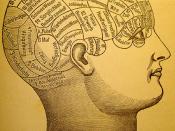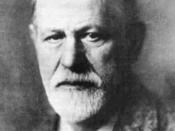According to Freud and Jung, dreams reflect your personality and affect your conscious life. Dreams "are not meaningless, [and] they are not absurd; [dreams] are psychical phenomena of complete validity" that can be analyzed and used to benefit you in your waking life. Dream analysis raises personal awareness of the activity in the unconscious that shapes individual personality.
Every character in your dream is a reflection of you, and your feelings, thoughts, desires and fears. For example, I had a dream that my boyfriend was kissing a girl at a swimming pool, so we broke up and he left with her. This was only about my unconscious fears and suspicions, not a precognitive dream that he was going to cheat on me or we were going to break up. These fears must be made conscious in order to have control over them and reintegrate them into my personality where they can be overcome.
My dream was a reactive dream because it pointed out something that I unconsciously wanted to change about myself. I didn't realize that a lack of complete trust for my boyfriend was becoming such a significant problem for me. These kinds of dreams can leave you shocked and confused when you wake up. The pictures and thoughts stay with you all day, creating an even larger feeling of mistrust. In reactive dreams, shocking material can be used to create a change in attitude. Our unconscious minds use reactive dreams to remember past events or to promote understanding. I learned that my dream was telling me that I felt insecure in my relationship with my boyfriend and that I had some trust issues. Jung urges his patients "to hold fast to repressed contents that have been re-associated with consciousness, and to assimilate them into their plan of...


